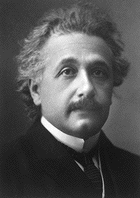published by Jonathan on Fri, 02/10/2006 - 22:30

From an AP story on MSNBC:
Recording the warmest January on record allowed Americans to save on their heating bills. But like all good things, last month's mildness seems to have been too good to last. The country's average temperature for the month was 39.5 degrees Fahrenheit, 8.5 degrees above average for January, the National Climatic Data Center said Tuesday. The old record for January warmth was 37.3 degrees set in 1953. The records go back to 1895 when detailed climate records began being collected. During January, none of the 48 contiguous states had below-average temperatures - and 15 states in the northern Plains, Great Lakes and Midwest had record high temperatures for the month. More than 74 percent of the country was classified as "much above normal" when compared to the 1961-1990 climate normal. The Climate Data Center said that only twice since 1895 has more than 74 percent of the nation had a much above-normal temperature - March 1910 and November 1999.
published by Jonathan on Thu, 02/09/2006 - 21:53

In addition to calling to raise the cap on H-1B visas, here's some more good news from Bush, from a story by John Markoff in the NY Times:
In his State of the Union message Tuesday evening, Mr. Bush called for a doubling within 10 years of the federal commitment to "the most critical basic research programs in the physical sciences." The president's science adviser, John H. Marburger III, said Mr. Bush would request $910 million for the first year of the research initiative, with a commitment to spending $50 billion over 10 years. Computer scientists have expressed alarm that federal support for basic research is being eroded by shifts toward applied research and shorter-term financing. But in his speech, Mr. Bush pointed to work in supercomputing, nanotechnology and alternative energy sources - subjects that were favorites in the Clinton administration but had not been priorities for the current White House. In a speech to the National Academy of Engineering in October, in which he described the findings of the Gathering Storm report, Mr. Barrett [of Intel] said: "If you look at the achievement of the average 12th-grade student in math and science, which is of interest to us here, that 12th-grader in the U.S. ranks in the bottom 10 percent among their international peers. I think it is incumbent upon all of us to look at that report and help raise our voices collectively to our local officials, state officials and national officials."
published by Jonathan on Wed, 01/18/2006 - 22:06

I like Wikipedia. From a news story in the scientific journal Nature:
Several recent cases have highlighted the potential problems. One article was revealed as falsely suggesting that a former assistant to US Senator Robert Kennedy may have been involved in his assassination. And podcasting pioneer Adam Curry has been accused of editing the entry on podcasting to remove references to competitors' work. Curry says he merely thought he was making the entry more accurate. However, an expert-led investigation carried out by Nature - the first to use peer review to compare Wikipedia and Britannica's coverage of science - suggests that such high-profile examples are the exception rather than the rule. The exercise revealed numerous errors in both encyclopaedias, but among 42 entries tested, the difference in accuracy was not particularly great: the average science entry in Wikipedia contained around four inaccuracies; Britannica, about three.
published by Jonathan on Sat, 05/28/2005 - 00:27
Ethanol is one of the posterchildren for renewable fuels in the proposed energy bill, but according to the research of UC Berkeley geoengineering professor Tad W. Patzek, more fossil energy is used to produce ethanol than the energy contained within it."
Pages